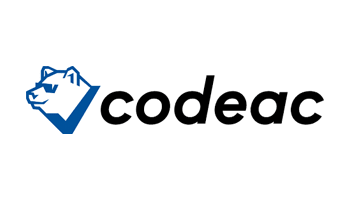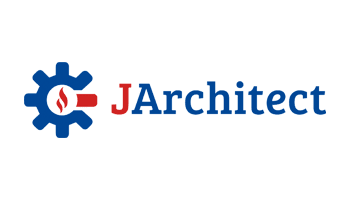Tools you should know about for better code quality.
When you’re new to coding, you’re usually so focused on getting your program to work that you may neglect the actual quality of the code you’re writing.
Now in some cases, this is totally fine in the beginning, but over time, as you become a better developer it’s important that you start to consider how you can improve the quality of our code.
In general, writing high-quality code can be crucial to the success of your project. Quality code not only ensures that your software runs smoothly and efficiently, but also helps prevent errors and saves you time in the long run.
However, ensuring code quality can be a challenging task, particularly when you're working on large, complex projects with multiple contributors.
Fortunately, there are several useful testing tools available that can help you maintain and elevate the quality of your code.
In this article, I’ll show you seven essential tools that you should know to achieve better code quality. Including code review and analysis tools that will help you streamline your workflow and identify errors and bugs before they become bigger issues.
By incorporating these tools into your development process, you'll be able to elevate your code quality, improve your productivity, and ensure that your software is running at its best.
Now let’s take a look.
#1 - SonarQube
SonarQube is an open-source platform that helps developers monitor and improve the quality of their code. It provides a detailed analysis of your codebase, identifying bugs, vulnerabilities, code smells, and other issues that could impact your software's performance and stability. By catching these issues early on, you can save time and effort by addressing them before they become larger problems.
SonarQube offers a range of quality metrics, including code coverage, complexity, duplications, and maintainability. These metrics are presented in an easy-to-understand dashboard that allows you to quickly identify areas that need attention. The platform also supports a wide variety of programming languages, making it a versatile tool that can be used across a range of projects and programming languages.
In addition to code analysis, SonarQube offers support for code reviews, integration with popular build tools such as Jenkins and Maven, and the ability to define and enforce coding standards. This makes it a powerful tool for improving code quality throughout the development process, from code creation to deployment. By using SonarQube, you can streamline your workflow, improve your coding skills, and deliver better software.
#2 - DeepScan
DeepScan is an advanced static analysis tool that helps developers identify and fix bugs and code issues in their JavaScript and TypeScript codebase. It uses advanced algorithms and pattern-matching techniques to analyse code at a deeper level, helping you catch subtle errors that might otherwise go unnoticed. With DeepScan, you can maintain code quality and improve the overall performance and reliability of your software.
One of the key features of DeepScan is its ability to detect issues that can be difficult to find using traditional testing methods. For example, DeepScan can detect issues such as null reference errors, memory leaks, and race conditions, which can be challenging to diagnose and fix manually. With its comprehensive analysis, DeepScan can help you find and fix issues before they become bigger problems that are more time-consuming and costly to address.
DeepScan also offers an intuitive and user-friendly interface that makes it easy to navigate and use. You can customise the analysis settings to fit your specific needs and preferences, and the tool integrates seamlessly with popular development environments like Visual Studio Code and GitHub. This makes it a convenient and powerful tool for developers of all skill levels who want to ensure that their JavaScript and TypeScript code is of the highest quality.
#3 - CodeSonar
CodeSonar is an award-winning static code analysis solution that helps to eliminate security and safety issues in your software. With CodeSonar's deep static application security testing (SAST) capability, you can find and understand quality and security defects in your source code or binaries.
It makes SAST integration into your development process easy with support for over 100 compilers and compiler versions, numerous integrations to popular development tools and IDEs, and whole-program analysis that finds issues other tools miss.
CodeSonar provides in-development insights, beyond just finding problems. It provides a deep understanding of where a warning comes from and what the risks are, even in code you did not write. With whole-program SAST and unique inspection reporting capabilities, CodeSonar helps developers understand, prioritise, and remediate issues rapidly.
CodeSonar supports many popular languages, including C/C++, Java, C#, and Android, as well as support for native binaries in Intel, ARM, and PowerPC instruction set architectures.
It also supports third-party applications through byte code analysis, improving code quality and developer efficiency.
#4 - Bandit
Bandit is a useful tool that is designed to help Python developers and data scientists identify and address common security issues in their code. This is accomplished by using Bandit to process each file, building an AST from it, and running appropriate plugins against the AST nodes. Once the scanning process is complete, Bandit generates a report that includes detailed information about any security vulnerabilities that were identified.
One of the things that makes Bandit such a popular tool among data scientists and AI experts is its ability to help users build code that meets organisational standards. Bandit is available for use over a command-line interface, making it easy to integrate into existing development workflows.
Bandit utilises the AST module from the Python standard library to convert source code into a parsed tree of Python syntax nodes. This allows users to define custom tests that are performed against those nodes, enabling them to identify security issues that might otherwise go undetected.
As Bandit continues to evolve and mature, it is likely to become an even more important tool in the world of Python development, with the potential to be added to OpenStack CI gate tests with non-voting and eventually voting capabilities.
#5 - Codecov
Codecov is a comprehensive code coverage reporting tool that offers developers actionable insights for deploying reliable code with confidence. With Codecov, you can enhance your testing by getting coverage insights directly in your workflow through pull request comments. You can also reduce the guesswork by setting customisable quality gates and letting your CI handle the rest.
Additionally, Codecov allows you to identify where tests can help you avoid errors in production through its Sentry Integration.
With Codecov, you can view all coverage reporting in one place, including cross-repo analytics that enhance visibility into your microservice architecture. It can be used with any language, CI Tool, Test Suite, and Code Host. You can separate your testing concerns by creating custom statuses and grouping coverage in your repo without modifying your test setup. You can also focus your team's attention on the most relevant insights with customisable coverage analysis.
To save time running tests, Codecov allows you to separate and categorise your coverage reports to the relevant tests and features in your product, which is ideal for monorepos and multi-test setups. You can also run only the tests you need on a PR-by-PR basis, automatically, and without adding anything to the developer workflow. Finally, Codecov seamlessly integrates with the majority of programming languages, all CI tools, and code hosts.
#6 - Codeac
Codeac is a powerful Code Quality CI tool designed to help developers measure code quality, decrease technical debt, and identify refactoring opportunities. It seamlessly connects to your Git repository and tracks every code change in your source control, saving you time and effort.
With Codeac, you can automatically identify new static analysis issues, code duplications, and cyclomatic complexity evolution in every commit, making code reviews faster and more efficient. The tool also allows you to track your code quality over time, providing you with the insights needed to improve your development processes.
On average, Codeac saves 20% of development time by automating code review and teaching coding standards and best practices faster. It introduces software development cycle time to measure the time taken from the first commit to the production.
Codeac is designed for sustainable development, delivering a remarkable Return on Investment (ROI). You can use any version of the control system of your choice to sign in, including Bitbucket, GitLab, and GitHub. Setup Codeac to know what is happening in the source control in just a few seconds.
Codeac is completely configurable and always provides detailed reports.
#7 - JArchitect
JArchitect is a fantastic tool that helps Java developers improve their code quality. With over 500 companies using it, JArchitect provides detailed insights into your Java projects.
It offers a variety of features, including Code Query over LINQ (CQLinq) to write custom rules, Technical Debt estimation for each issue, customisable Quality Gates to ensure code quality, exploration of code architecture, Code Metrics analysis, generation of reports, Issues Management, Coverage Data import, comparison of builds, Dependency Cycle management, Immutability and Purity support for clean concurrent programming, and Plugins Integration with PMD, FindBugs, CheckStyle, and CPD.
JArchitect also provides Trend Monitoring with Trend Charts for any code metrics, making it easy to track the evolution of your application.
Additionally, it has unique diagramming capabilities in the C/C++ world to spot complex code at a glance.
With JArchitect, you can discover amazing details about your Java projects and improve your code quality.
In conclusion, all these tools are designed to help you measure and improve your code quality, streamline your testing process, and optimise your development workflow.
With a variety of features and integrations, these tools offer a comprehensive solution for developers looking to deploy reliable code with confidence.
So whether you're looking for code coverage reporting, code quality measurement, or architectural exploration, these tools have got you covered.
Give them a try and start elevating your code quality!
All the best.
From your fellow ever-growing dev,
Cherlock Code
💙 If you liked this article...
I publish a weekly newsletter to a community of ever-growing developers, seeking to improve programming skills and stay on a journey of continuous self-improvement. Focusing on tips for powering up your programming productivity 🚀.
Get more articles like this straight to your inbox.
And stay in touch on 🐦 @evergrowingdev


























